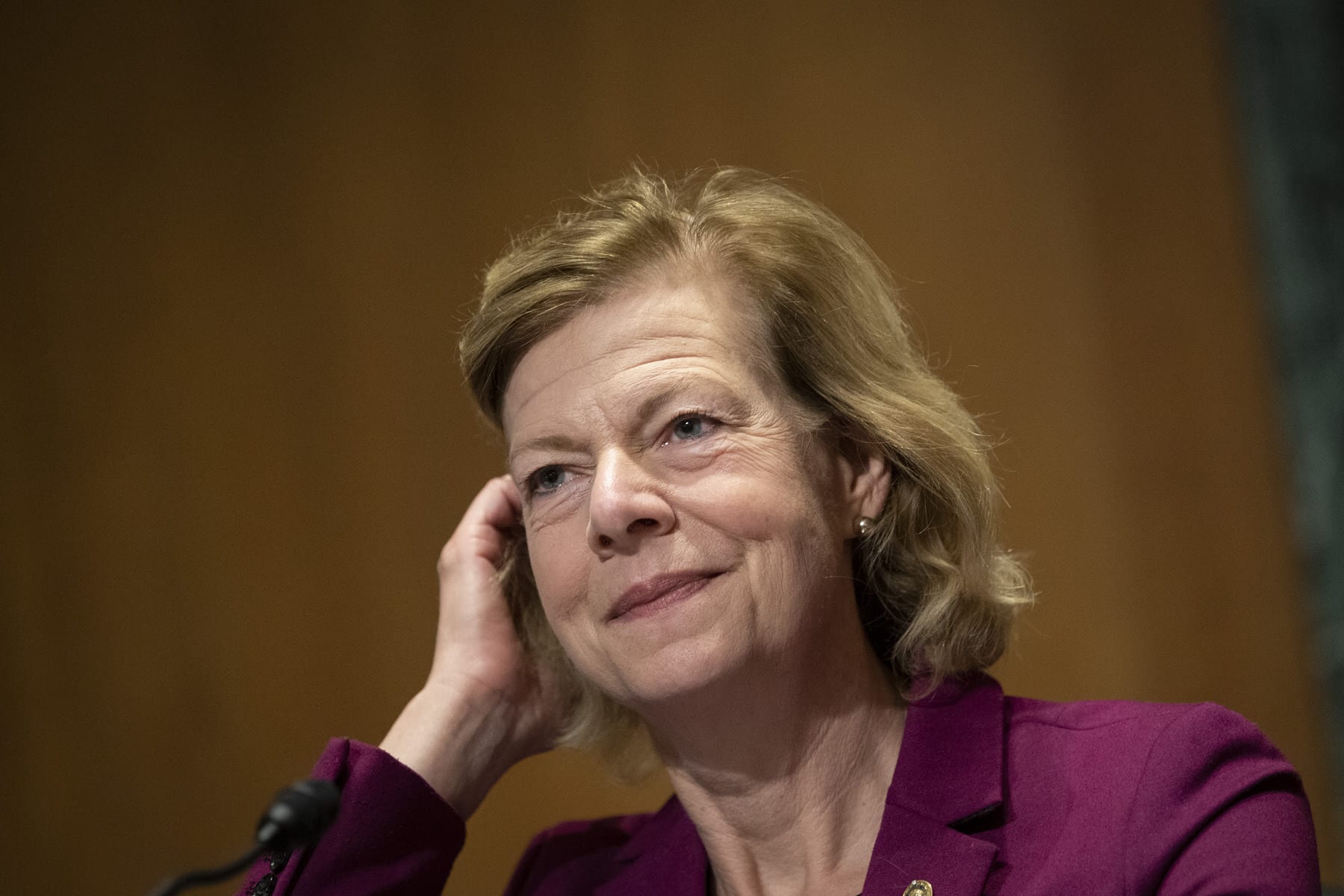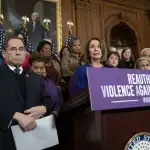The U.S. Senate on Tuesday voted unanimously to stabilize a fund that covers services such as medical care, counseling, legal costs and temporary housing for survivors of violent crimes and their families.
The Victims of Crime Act, or VOCA, is a 1984 law that established the Crime Victims Fund, which directs millions of dollars in fines and other penalties paid by individuals and corporations convicted of federal crimes to thousands of organizations that provide services for survivors and witnesses of violent crimes, including sexual assault and domestic violence.
But as federal prosecutors increasingly use deferred or non-prosecution agreements to resolve corporate wrongdoing, the fund’s balance has dwindled. Deferred prosecution agreements allow parties to avoid a trial by coming to a voluntary agreement. The terms often involve monetary fines, but they are directed into the general treasury and not the fund for survivor services.
Democratic Sen. Tammy Baldwin helped reintroduce legislation in March that she started working on last year to redirect the funds tied to deferred and non-prosecution agreements to the Crime Victims Fund. In Baldwin’s home state of Wisconsin, grants for victims were cut by nearly 80 percent between 2018 and 2021, she said.
Baldwin spoke to The 19th ahead of the vote to explain why there was broad bipartisan agreement on what she calls the “Deposits Fix” Act, and how the need for the fix only grew during the COVID-19 pandemic.
This interview has been lightly edited for length and clarity.
Amanda Becker: How did you first learn about the VOCA fund and the services it covers?
Sen. Tammy Baldwin: I started in local government, which has pretty close interactions with a lot of the agencies that provide services to victims of violent crimes, like domestic abuse shelters, and sexual assault support crisis organizations, as well as the county courts that try to make sure that witnesses and victims of violent crime have the support they need. In that very early time in my public service, I learned about the vital nature of those programs and how they really help advance justice, accountability and public safety. Crime victims also experience financial loss, too, whether it’s seeking medical treatment following a violent crime for injuries or, in some cases, these funds are used for funerals, when the victim of crime has passed away, to help the family.
What types of crime survivors and victims are eligible to receive services through this fund?
It’s predominantly focused on victims of violent crime, their families, and witnesses of violent crime. The programs vary. A victim of domestic violence, the sort of support that they might receive indirectly through the Crime Victims Fund might be staying at a domestic abuse shelter, away from the offender; it might be, during the pandemic, some sort of support telephone support group; it might be somebody to accompany you to court when you ask the court for a restraining order, so that your abuser is unable to have contact with you. Or in trial itself somebody to basically accompany you to the court proceedings and provide support. It’s vital services for survivors, everything from counseling to support groups, court accompaniment, shelters, etc.
How did it get on your radar that the fund’s balance was diminishing so you could start thinking about a legislative fix?
I have been hearing for a number of years now that the funding in the Crime Victims Fund is dwindling. At first, it didn’t quite make a lot of sense, when we’re hearing that crime rates are up. But they were dwindling, and the reason for that is a trend we’re seeing in prosecutorial decisions. There has been the increasing use of things called deferred prosecutions, and also non-prosecution agreements. Because of increasing reliance on those two things, the funds that used to fund the crime victims funds, which are criminal penalties and fines, aren’t going there anymore. Monetary fines are still levied in those two cases. The differences, in those two types of resolutions, is those funds go to the general treasury, not to the Crime Victims Fund. So my fix was to say: “Let’s replenish the Crime Victims Fund by including not only fines as a result of prosecution, but also the fines and monetary penalties that come out of the deferred prosecution and non-prosecution agreements.”
It’s my understanding the situation was exacerbated, like so many things, by the COVID-19 pandemic. Why is that?
There were certain types of crimes that the Crime Victims Fund is particularly focused on that were occurring with greater frequency, and one is domestic abuse. A lot of folks were confined at home during the early quarantine period, and we saw upward trends with regard to the frequency of those types of crimes. So more people were in a need of crime victim assistance, whether that was domestic abuse services, sexual violence services, elder abuse services, and in some cases, witnesses also. So that’s number one. Number two, the courts for some period of time shut down in many cases as they scrambled to figure out whether they could conduct their business in person, safely, or remotely and safely. That certainly interrupted the usual flow of criminal cases through the court system. There’s higher demand for the services and lower amounts coming into the Crime Victims Fund. And it really was quite exacerbated during the pandemic quarantine period in particular.
This bill has more than 60 cosponsors, the number of votes needed to overcome a legislative filibuster. Why do you think this is a rare instance of bipartisan consensus?
I am certainly pleased to see such strong bipartisan support on VOCA, especially to address this funding shortfall, and to say, resoundingly, that this doesn’t use a single taxpayer dollar, this is all appropriately funded by perpetrators.
The House passed its version of the bill earlier this year. After the Senate vote, what is the next step?
The next step would be going to the White House, and as soon as this is signed into law, these funds should start flowing into the Crime Victims Fund without delay.






